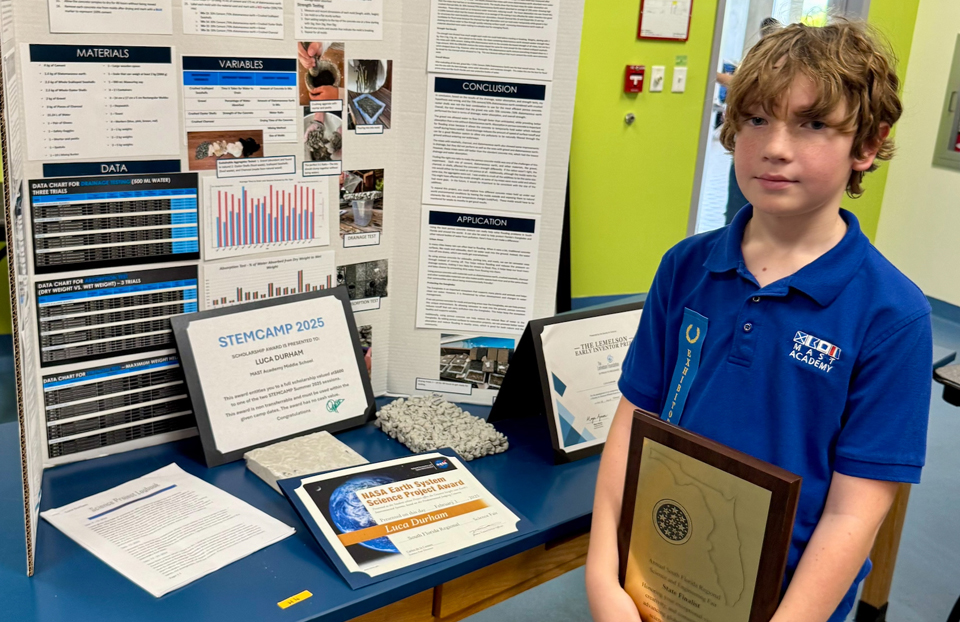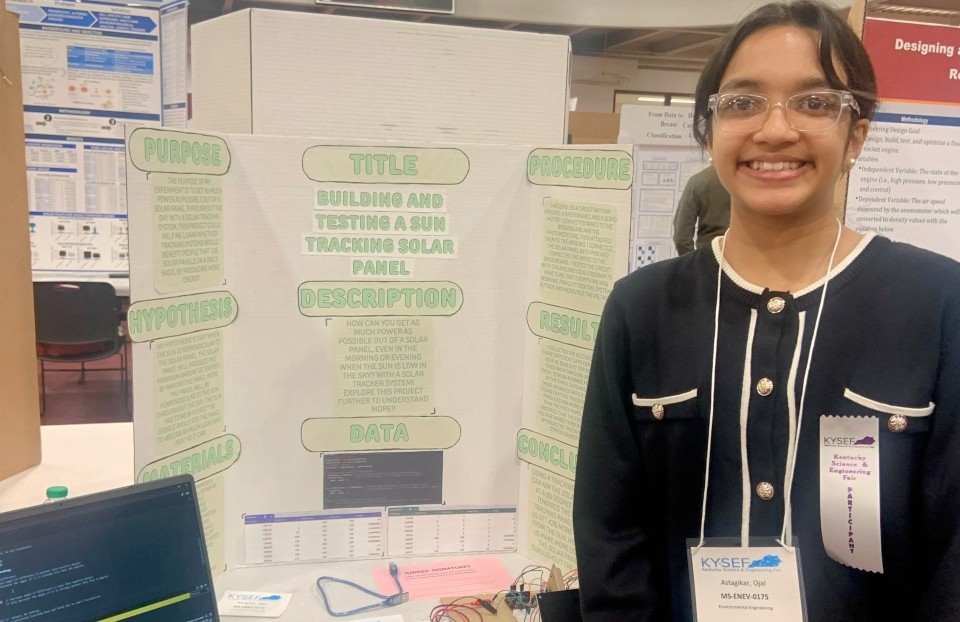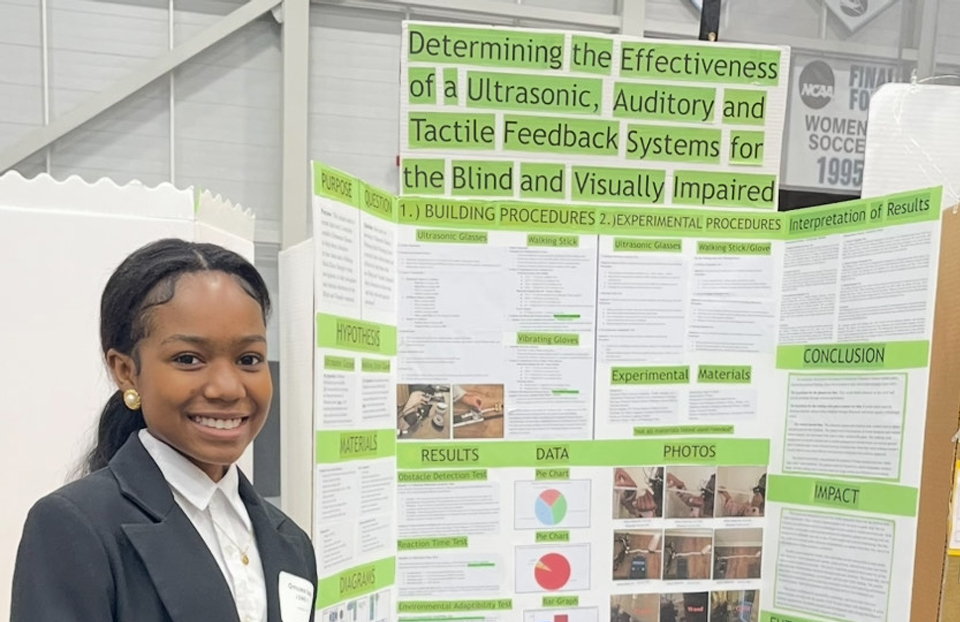PillBot: Saving lives one pill at a time
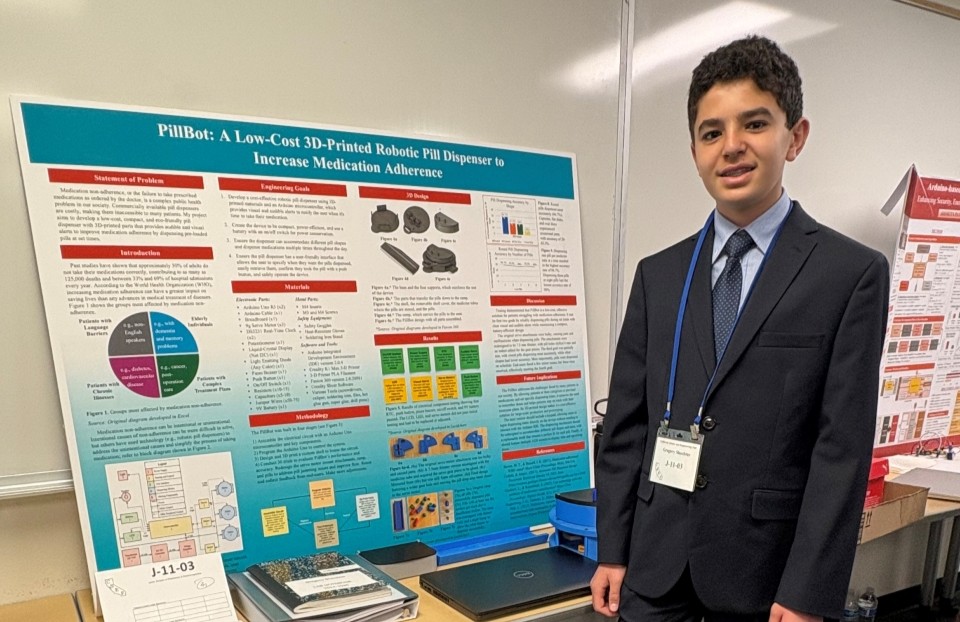
For the seventh year, The Lemelson Foundation is awarding $100 prizes to outstanding young inventors in Society Affiliate Fairs with middle school participants across the country. The prize was created to recognize young inventors whose projects exemplify inventive thinking by identifying challenges in their communities and creating solutions that make a difference.
Medication non-adherence is a widespread and often-overlooked public health crisis. According to the National Institutes of Health, seventy-five percent of Americans struggle to take their medicines as directed, contributing to an estimated 125,000 deaths each year and accounting for up to 69% of hospital admissions. The burden is especially heavy for the elderly, those managing complex treatment plans, and patients facing language barriers.
For Gregory Shechter, an eighth grader at Palos Verdes Intermediate School in Palos, Verdes California, these staggering figures weren’t just statistics. They were personal.
As he witnessed his grandfather bravely battle colon cancer, he was struck by how challenging it was to organize his regimen of nearly 30 pills a day. Despite his grandmother’s careful notes, keeping track of what to take when remained a constant struggle. Witnessing this challenge firsthand inspired Gregory to act. “I wanted to build a device that could help my grandfather and others like him,” he said. “What if technology could help save lives, one pill at a time?”
He set to work building a device to address the problem. His invention, called PillBot, is a robotic dispenser that automatically releases pills on schedule and provides both audible and visual alerts to guide users. Unlike many commercial pill dispensers, which cost between $100 and $2,000, Gregory’s design uses 3D-printed parts that dramatically cut production costs. The filament for the dispenser’s shell costs only about $10 per kilogram, making the system more accessible to those who need it.
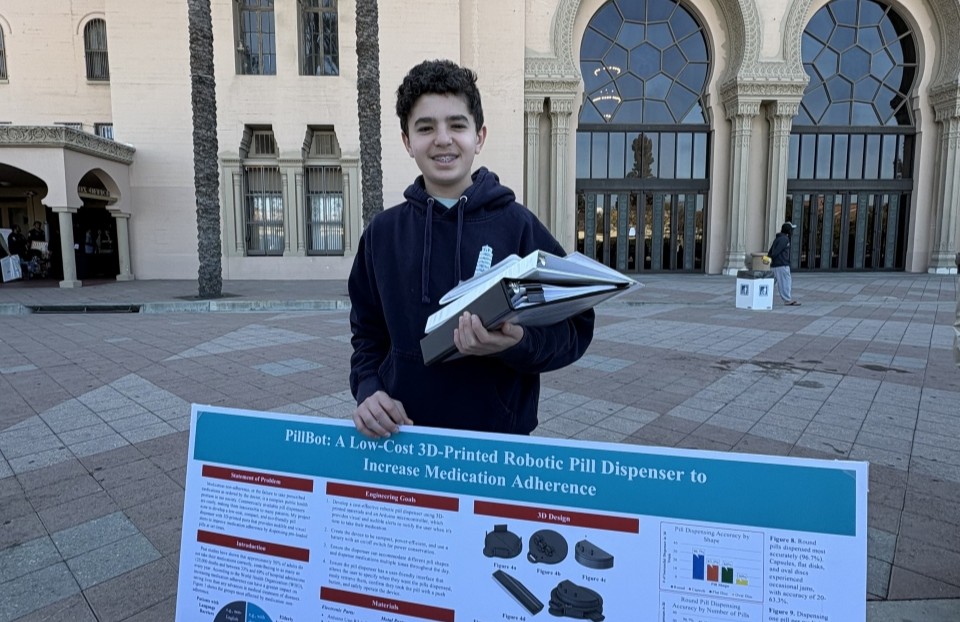
At the heart of PillBot is a custom dispensing mechanism. Gregory programmed an Arduino Uno and servo motors to release pills onto a dispensing ramp. His compact, two-layered design houses the medicine tubes, electronics and ramp within a user-friendly 3D-printed shell. Unlike commercial systems, his open-source design allows users to adapt and customize the dispenser for different pill types, schedules or personal needs.
The engineering process came with challenges. To fix early jams and non-round pills, Gregory redesigned the servo attachments three times, making them thinner, adjusting the alignment, and adding an indent to secure gear connections. After these refinements, PillBot dispensed pills with 96.7% accuracy across 30 trials. “Redesigning was the hardest part,” he said, “but once I got it working, it was amazing to see the accuracy improve.”
His favorite part? Talking to judges at the Los Angeles County Science and Engineering Fair, and California State Science and Engineering Fair. “I was nervous at first, but by the end, I didn’t want it to be over,” he said. “I wanted to keep sharing my project, doing demos and talking to fascinating people.” Those conversations not only boosted his confidence but also gave Gregory ideas for future improvements.
For his innovative efforts, Gregory received a Lemelson Early Inventor Prize. On receiving this recognition, Gregory said, “I built the PillBot in honor of my grandfather, who passed away last year. He was my biggest supporter, along with my parents. He always believed in my potential, and this award feels like a special way of honoring his memory.”
Read about another recent Lemelson Early Inventor Prize winner here.
